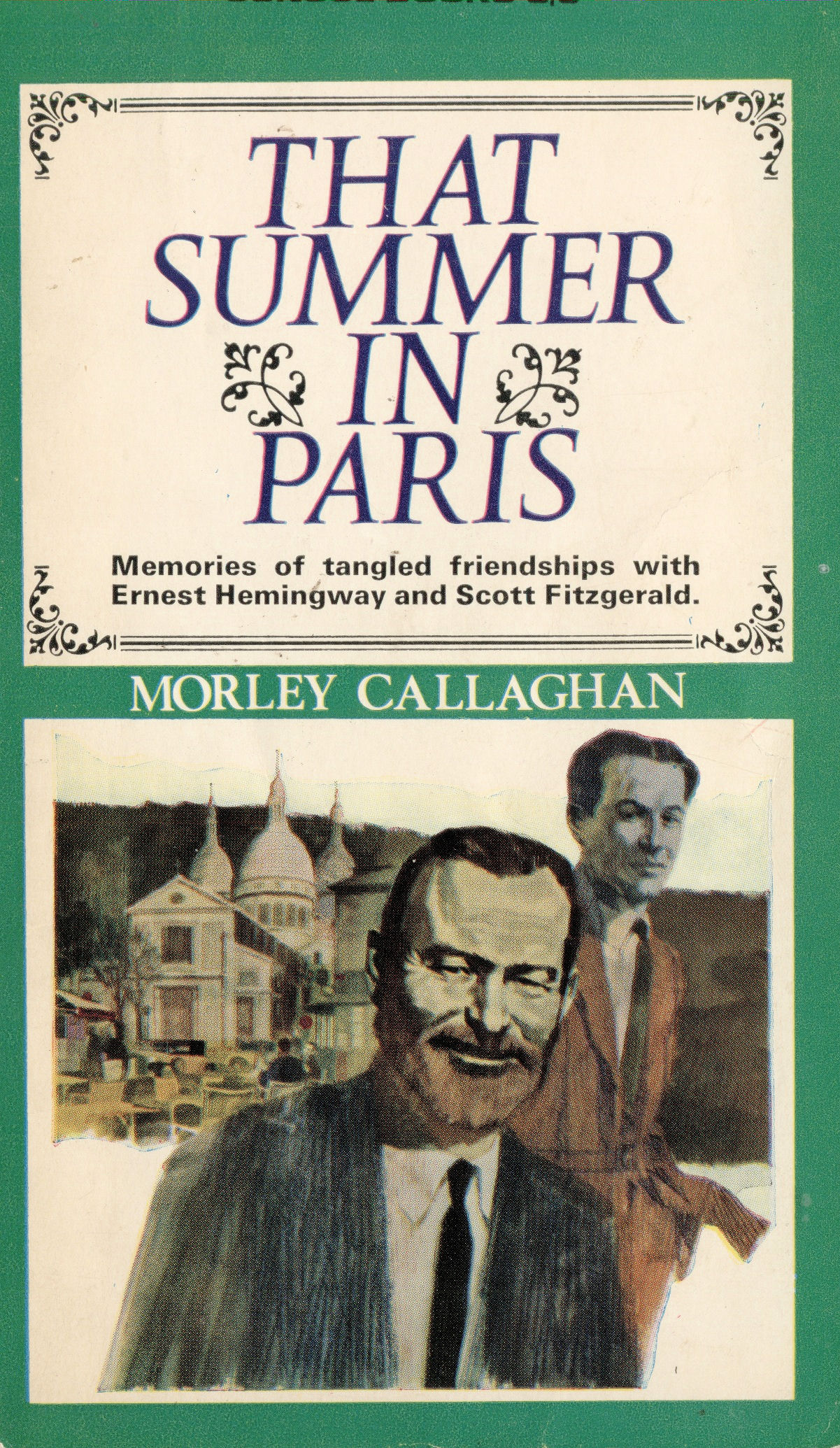
That Summer in Paris: Memories of Tangled Friendships with Ernest Hemingway and Scott Fitzgerald
by Morley Callaghan
CHAPTER THREE
I DIDN’T doubt that I would hear from him and see him again. It was just a feeling of certainty. With great confidence I began to write stories. At the university I found a student named Tom Murtha, who was interested in Dorothy Richardson and Katherine Mansfield. This student, a shy, talented man, was not given to the expression of much enthusiasm, but I could talk to him on even terms about my friend Hemingway, and show him what I was writing myself. Of an afternoon I would go down to the Star building and into the Weekly office and ask Greg Clark if he could go across the road to Childs and have a coffee. Greg Clark, a little man with a wonderful strut, a lot of charm, and shrewd grey eyes, had been a fine soldier in the war. He had a kind of big-brother sympathetic friendliness. Sometimes Jimmy Cowan would join us for a coffee and we would talk about Hemingway and wonder what he was doing, then Greg would start telling his own war stories. Years later I found that Greg could never remember anything I said to him, sitting in Childs. How could it have been otherwise? He was never listening to me. My confidence about writing amused him, but when I would show him a story, written on Star copy paper, he would lean back meditating. “I don’t know. How do I know? Well, maybe Hem would like it,” and I would know he thought it was unprintable. We were both laughing at each other, yet the wonderful thing about him was that he was the only man I knew on the newspaper who was willing to admit that possibly, just possibly, someone else in the world might think I was doing something very good.
When I had written a ten-thousand-word story about a young fellow’s first love affair, I sent it to Paris. A month passed. No word came. It didn’t matter. I never doubted the intensity of Ernest’s interest. And I had found someone to whom I could communicate his faith in me. At a college dance I met Loretto. She had brown eyes and black hair and a Renaissance profile, and she had the advantage of not being steeped in bad writing. I remember the night I met her downtown, the night when I came hurrying to the street corner where she stood under the streetlight, and I whipped out a letter from Paris. Just a few lines on the page written in a small cramped hand, but signed by Ford Madox Ford. My story, shown to him by Hemingway, he wrote, was too long for the Transatlantic Review which he was editing in Paris, but could I send him something shorter? I was full of joy and excitement. Taking Loretto’s arm, I hurried her along the street, telling her Ford was a great man in English letters, the collaborator of Joseph Conrad. “Didn’t Hemingway say he would tell them in Paris about me?” I said. “Well, he’s telling them.” Crossing in front of the Catholic cathedral I stopped suddenly. “I’ll go to Paris. I’ll take you with me,” I said. Laughing, not quite believing me, she asked how I could get to Paris if I studied law. But that night I knew in my heart that I had touched the world beyond my hometown. In Toronto, Paris indeed became my city of light.
Next Chapter 4
Published as That Summer In Paris: Memories of Tangled Friendships with Ernest Hemingway and Scott Fitzgerald by Morley Callaghan (New York: Coward-Mccann, 1963).
